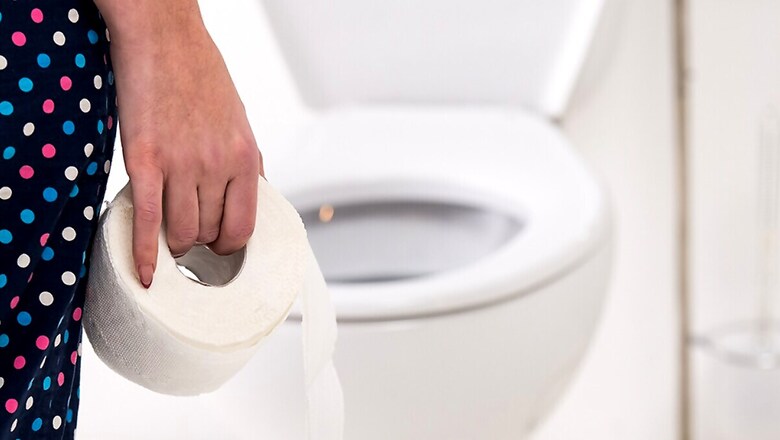
views
In the realm of public health, the spotlight often shines on the dedicated efforts of doctors, nurses, and researchers tirelessly working to enhance the well-being of communities. Yet, amidst this discourse, the silent heroes who toil in the background are frequently overlooked—the sanitation workers. Their vital role underscores the critical importance of sanitation in shaping public health outcomes.
In India, where sanitation concerns persist, the impact on women’s health is particularly profound. In the context of women’s health, sanitation is a linchpin that affects every facet of their lives. Insufficient sanitation infrastructure can lead to myriad health challenges for women, exacerbating existing gender disparities.
The biology angle
In general, it is much easier for women to catch infections from dirty toilets because a woman’s urethra (the tube from the bladder to where the urine comes out of the body) is shorter than a man’s. This makes it easier for bacteria to get into the bladder. There are a number of health risks that are particular to women, in the context of poor sanitation.
- Urinary Tract Infections (UTIs): Inadequate access to clean water and toilets increases the risk of UTIs, which can lead to pain, discomfort, and even serious health complications.
- Reproductive Tract Infections: Lack of proper sanitation facilities exposes women to various RTIs, including cervical cancer and pelvic inflammatory disease. RTIs can also increase the risk of HIV transmission and other sexually transmitted infections.
- Menstrual Hygiene Management: Absence of private and hygienic toilets makes managing menstruation a challenging and often humiliating experience for women and girls. When they don’t have access to toilets, they have no place to change their menstrual pads, no place to dispose of them, no place to wash them. This can lead to infections, rashes, odour and discomfort. Which, in turn, leads to increased vulnerability to infections, social isolation, and absenteeism from school and work.
- Maternal Health: The increased risk of infections can lead to poor health outcomes for both mother and child, in addition to complicating the pregnancy.
- Mental Health: Imagine not being able to enjoy a meal, drink enough water, or go for an outing… all because you don’t have access to a toilet. This constant worry and anxiety associated with accessing sanitation facilities can lead to significant mental health issues like stress, depression, and anxiety.
And just like everyone else, women too are susceptible to diarrhoeal diseases, which are much more likely to occur in communities that have inadequate sanitation facilities.
Empowering Women through Sanitation
Improving access to sanitation is not just a matter of health; it is a cornerstone of women’s empowerment. When women have access to clean and safe sanitation facilities, a ripple effect is set in motion, fostering their empowerment across various dimensions.
First and foremost, improved sanitation ensures better health outcomes for women. Accessible toilets and clean water reduce the incidence of waterborne diseases, promoting overall well-being. This, in turn, translates into enhanced productivity and quality of life.
Access to sanitation facilities affords women the dignity and safety they deserve. No longer forced into the vulnerable position of going to the toilet where anyone can see them, women can navigate their daily lives with a sense of security, free from the fear of harassment or assault. This newfound safety is not just a matter of physical well-being but a fundamental human right.
Improved sanitation positively impacts women’s participation in education and economic activities. When schools and workplaces have adequate sanitation facilities, women are more likely to attend school regularly and engage in employment without the hindrance of sanitation-related challenges. This helps society overall, as educated women educate their families, have a better grasp on nutrition, and understand the mechanisms of sanitation and disease. Women who work also benefit from economic independence and are better able to protect themselves and their children from abusive circumstances. They are also able to actively contribute to building wealth in their families.
Enhanced access to sanitation also contributes to challenging and dismantling harmful societal norms surrounding menstruation. When women have the proper infrastructure to manage their menstrual hygiene, it paves the way for destigmatizing menstruation, fostering open conversations, and a dismantling of the old taboos.
A New Dawn
In 2014, India embarked on a transformative journey to address the sanitation crisis, launching the Swachh Bharat Mission (SBM). The mission focused on constructing individual household toilets, promoting solid waste management, and creating awareness about sanitation and hygiene. The mission has been a resounding success, achieving remarkable progress in a short period. Over 10 crore individual household toilets have been constructed, leading to a 100% increase in sanitation coverage from 39% in 2014.
However, some challenges remain, such as ensuring long-term sustainability of sanitation facilities, managing solid waste effectively in rural areas, and changing ingrained social behaviour around sanitation practices.
The GoI has many allies in the work on behavioural change communication. Topmost amongst them is Harpic, India’s leading brand in the lavatory care segment. For years, Harpic has championed the cause of toilet hygiene through innovative and thought provoking campaigns and outreach programs.
Harpic has also joined hands with News18 in Mission Swachhta aur Paani, a movement that champions the cause of inclusive sanitation, equality for all genders, abilities, castes and classes and the strong belief that clean toilets are a shared responsibility.
Mission Swachhta aur Paani leverages News18’s vast reach to bring these problems and their solutions to people like us, who then have the power to campaign for these solutions with our municipalities, our elected officials, and even bring about changes at our own workplaces.
What we talk about matters. What we complain about matters even more. The lack of clean and safe toilets isn’t just about constructing the toilets themselves, but promoting responsible usage. No one wants to use a filthy toilet, no matter who they are, or what their background is. This is a mindset that we all need to address, and talking about it is the first step.
Join us. Let’s make each conversation count towards bringing us closer to a truly Swasth and Swachh Bharat.




















Comments
0 comment